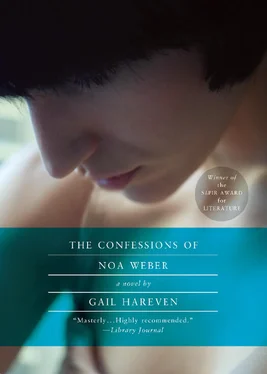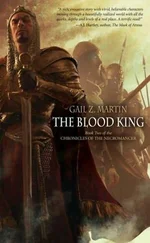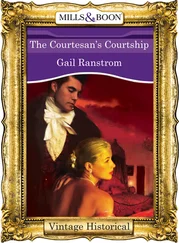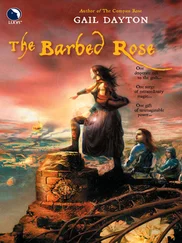As always, I had to piece bits of information together. “My mother lives in this,” he said to me one night as we descended the Mount of Olives in the direction of the onion-domed church. “Lives in it?” “In Jesus.”
“Is your mother a Christian?”
“She’s a Jew. She’s a Jew in her own eyes, and everyone who sees her sees a Jew.”
“Sometimes when we walk here I try to imagine what it would be like to believe that—”
“You can’t.”
“Just to imagine, what it’s like to really believe that Jesus—”
“Impossible. People like my mother, and all her friends from the sixties, they don’t believe ‘that Jesus,’ they believe in him , which is completely different. They believe in Jesus, and ‘believing that Jesus’ only comes — or doesn’t come — afterwards.”
“But you would like to.”
“What?”
“Know how it feels? To believe?”
“No, certainly not.” He lied, and after a few steps he added, “You and I, we don’t come to these questions from the same place. It’s not a question of what a person wants at all. You don’t choose the direction of the movement of your soul. I don’t choose the direction of mine. There’s nothing you can do about it. So the most a person with intellect can do is to curse all the way, to yell at his soul: Why did you take me here? And why did you take me there? It’s normal, it just doesn’t really help, all that yelling.”
The moon whitened the stone walls lining the path and cast long shadows behind us. From a distance the city returned to its primeval sounds. A dog barking and a dog replying. The voice of a woman calling over rhythmic metallic blows. Far-near sounds as if we were walking in a country village. I wanted to linger longer, not to go down into the field of vision of the new city. But Alek took hold of my elbow, hastened his steps and said dryly, “Such talk … the direction of the movement of the soul … don’t trust a man who invites you to come up to his apartment to listen to Vivaldi, and don’t believe a man who talks to you about God.”
So on the morning of my wedding I bought a white dress, and with the dress rolled up in my shoulder bag, without really thinking, I arrived at the church of the Holy Sepulchre. Straight from the autumn heat into the cool halls below and the dim little room with the single icon hanging in it, the one that Alek loved and belittled.
To this day I have no explanation for what happened there. I was very tired and very alert. I was high on the smell of the incense. Dazed by the transition from glaring light to gloom. I really don’t know, but I remember how the flickering candlelight lent a strange life to the young Madonna’s face, and I remember how quietly and gradually the longer I looked at her the more present she became to me, until she was more real than the tourists moving overhead. She was a timeless Mary, the one who received the annunciation and the one who gave birth, the one at the foot of the cross and the one ascending to heaven to be the bride of God. All the paintings I had seen with Alek combined in her, just as if she was a familiar personality and the object of private memories beyond time. So present to me was she in her infinite serenity, that it came about that I smiled, not to myself, but at her.
What is there to say about this scene? I was eighteen, in other words still an adolescent, and stretched to my limits. And even at those moments I didn’t think of “revelation”—in other words I knew all the time that the flickering figure was only a mirage — but I had a terrible need, and the need radiated out of me, and projected the figure out of the picture, where it twinkled and shone at me until it came about that I addressed it. “Make it be true,” I begged, and by true I meant me and Alek.
All kinds of alien words, alien wishes, whispered in me then. It embarrasses me to remember them now. I wished, with all my heart and soul, I wished for it to be “true” and “pure.” I asked to be “cleansed.” I asked to fall asleep and wake up bathed and washed in light, free of the dross of speech and of buffoonery and of lies. I was ready to endure pain, to be scoured by it, and I begged for grace. The devil knows where I got all this from, but the yearning was so physical and absolute, and the tenderness flowed and ebbed and flowed from her so powerfully that I relaxed my knee and started to kneel. Yes, that’s exactly how it happened, that’s what I did: I relaxed one knee, sent the other one backwards, and I was on the point of kneeling in front of the icon when something grabbed me in the middle of the movement, sent a shiver of disgust through me, and made me stand up straight.
For a minute longer I stood there, concentrating on purpose on the grotesque artistic clumsiness of the gesture of kneeling, and I let the self-loathing pour through me and fill me completely. For one more minute I examined the rather blackened face of the Madonna, with its expression of autistic sweetness, and only then I turned to go. “Comedian,” my Grandma Dora’s word came back to me, “comedian, comedian, comedian,” and to the hammering of this word, “comedian,” I made my way through the crowd of tourists and pilgrims to the door of the church.
URGES AND IMPULSES
When she completes her studies Hagar will be a rabbi, and when she finds herself a congregation she will also marry people. In the framework of her tireless efforts to educate me, she recently sent me a collection of articles about the importance of “rites of passage” and the enlightened alternative ways of celebrating them. I read my lucid daughter’s lucid contribution, and paged disinterestedly through the rest of the collection, and the next morning I sat down to compose a careful maternal response. I praised the quality of the production and the editing, thanked her for the illuminating analysis of the components of the marriage ceremony and especially the interesting interpretation of the apparel of the bride, expressed my not completely sincere wish that the numbers of religious people like her fellow students would grow in Israel, too, and only at the bottom of the page made the barbed comment: “… I still have my doubts as to whether anthropologists can serve as priests.”
“Understanding the meanings of the rites we perform doesn’t turn us into anthropologists,” my daughter answered in a hasty e-mail, “our awareness doesn’t contradict our faith, and as far as I’m concerned it only strengthens it.”
If I had told Hagar the story of the morning I got married — which I have no intention of doing — she would have seen it as conclusive proof both of my need for ritual, and of my repressed religious feeling. And she would also have said that if I had been married in a Jewish ceremony that was “progressive” and “meaningful,” rather than in the Rabbinate, my feet would not have led me to a church. But that’s not the point, it’s something else entirely, which I can’t explain to her: I’m not denying the existence of the religious impulse, who am I to deny it, I’m only denying the existence of a godhead to which this impulse is directed. And I’m certainly not convinced that my intelligent daughter really believes in God.
She certainly possesses an urge to believe. It’s not clear to me where it comes from or why, but it’s there — maybe this desire is genetic, maybe she inherited it from her parents. But the desire to believe is not the same as belief itself, and my daughter’s garrulous religiosity is in my eyes only a self-indulgent courting of a bad impulse. An act of buffoonery, exactly like my almost kneeling in front of a badly painted icon of the Virgin Mary.
I didn’t understand much at the ages of seventeen and eighteen. Since then I’ve come to understand a little more, and when I recall things that Alek said, and even more so the way he stood there in the church, it seems to me that the religious impulse was aroused in him then to a degree or in a manner that he still needed to fight, and it was only for the sake of this war that he went to church. Liberating the experience in order to overcome it and emerge as someone who had triumphed over himself.
Читать дальше












